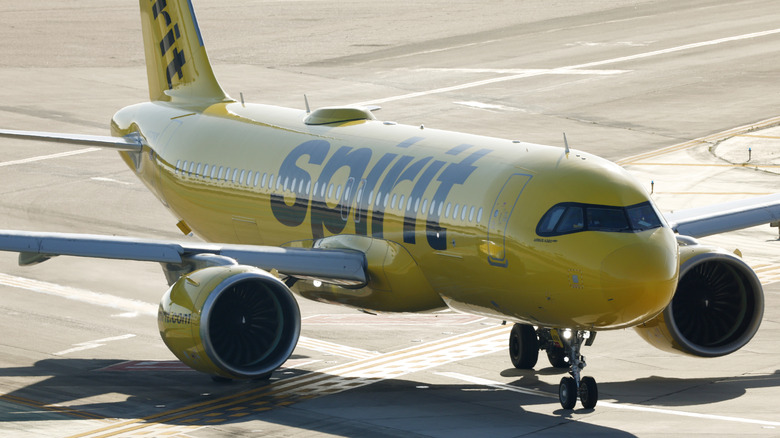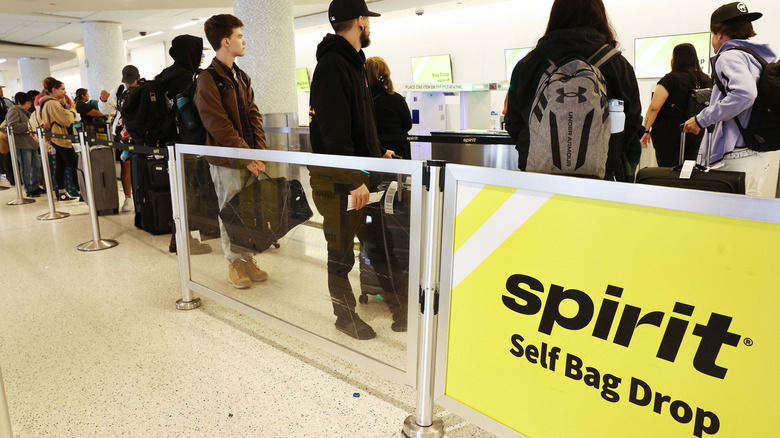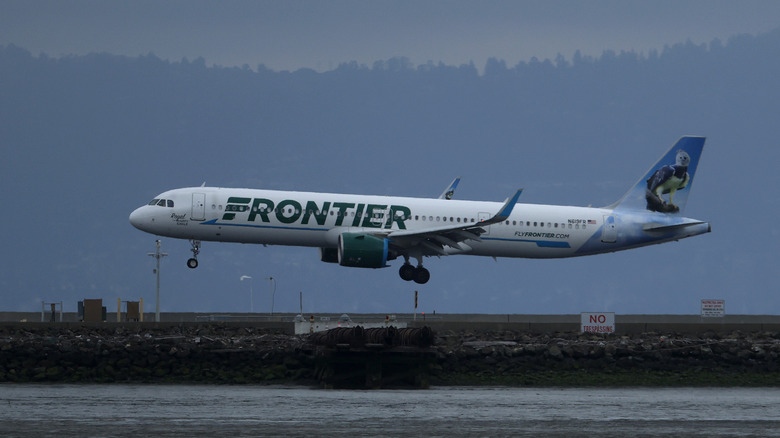What? They could not get it proper the primary time? That was the comprehensible snap response to no-frills service Spirit Airways declaring chapter for the second time in a yr, after popping out of a Chapter 11 restructuring in March. However earlier than you throw up your arms in exasperation, contemplate that chapter is only a software, and a helpful one at that should you’re an airline that has liabilities reportedly topping as a lot as $10 billion. Bloomberg has the breakdown of what is actually occurring, and the underside line is that Spirit has too many planes and is going through an excessive amount of competitors on the degree of its core enterprise, which is dirt-cheap but wildly obtainable aviation. From Bloomberg:
[Spirit’s] second chapter submitting in a yr indicators that the low-cost service is lastly going through as much as the painful steps wanted to make sure its survival.
However its board faces daunting challenges on the trail forward, together with how you can downsize its fleet of leased plane whereas managing the curler coaster market circumstances for US air journey that complicate the prospects for a long-term restoration.
Strategic bankruptcies within the airline enterprise are nothing new; American Airways entered Chapter 11 in 2011, as an example, merged with US Airways, and the brand new firm was far mightier than both former firm had been by itself. Spirit’s newest insolvency, nonetheless, appears extra like a determined sign that it intends to get very, very severe about its long-term viability.
Spirit stopped earning money in 2020
The airways went into the purple on an annual foundation in 2020 and by no means recovered. In its prior chapter, it restructured $1.6 billion in debt, however what it actually wanted to do was merge with JetBlue – a deal that was blocked by the federal government final yr. A key concern is that Spirit’s enterprise mannequin, which mixed extraordinarily low fares with a you-pay-for-anything-extra mojo, thrived earlier than the pandemic however ran smack into better-capitalized competitors when passengers resumed flying. Tariffs have not helped, provided that the airline flies made-in-Europe Airbuses.
The large home carriers invaded the no-frills house with their very own choices, to the purpose that Spirit’s method appeared much less like a savvy solution to fly and extra like questionable masochism. However Spirit continued to function a fleet that was too massive and, in accordance with Bloomberg’s reporting, may try and get out of 150 leases via the Chapter 11 course of. Bloomberg additionally recognized an acquisition risk to Spirit within the second chapter, however that would truly be a blessing. Spirit was flirting with a possible tie-up with Frontier, a competitor that had already tried to purchase Spirit with a lowball provide earlier than chapter primary.
Stepping again from the brink
It is likely to be extra helpful to consider Spirit’s return to chapter as extra of a continuation than a reset: the Chapter 11 that concluded in March has been kind of resumed, however this time with a extra severe give attention to Spirit’s issues. For all of the negatives, that is truly what the chapter course of is for; if firms aren’t in a position to tackle debt to develop, then innovation would grind to a halt.
And for all of the complaints about its service over time, Spirit did provide a central innovation. The pitch was that if the expertise of flying mainly sucked throughout the board, then why ought to passengers be paying big-carrier fares? The corporate basically repriced the ordeal of sitting in a crummy little seat for a number of hours, and loads of clients had been glad to go alongside for the disagreeable experience. That method wasn’t going to place the key gamers out of enterprise, nonetheless. And their diversifications introduced Spirit with successfully one possibility for persevering with to compete: lower fares much more to retain clients. That sport grinds down income and in the end makes it unattainable to function on the scale required to maintain up. Spirit may not survive, however we should always thank the lurid yellow airline for introducing one more cruel market effectivity to the capitalist skies.




